Why Landlords Run Background Checks on Tenants in the UK
August 15, 2021 - Reading time: 9 minutes
Updated on: September 5, 2025
Deciding to lease out your property, whilst being a logical and profitable endeavour in most cases, can expose landlords to a range of different risks which most people may not ever consider.
We have all seen the horror stories in newspapers and television programs, where tenants will decide to damage a property or forego paying rent for several months before they are evicted. These situations can cause landlords to lose significant amounts of money in repair bills, lost rent and legal bills, not to mention the stress and mental toll which can ensue as a result.
In many cases, situations involving undesirable tenants can be avoided by conducting suitable background checks before a lease is signed. Indeed, we have completed checks on numerous individuals who turned out not to be suitable tenants, for a variety of reasons.
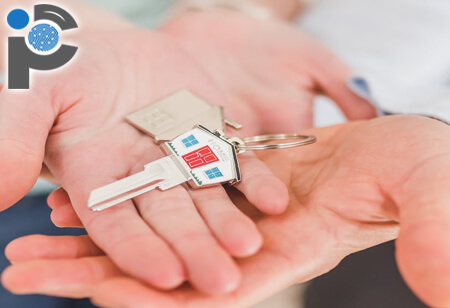
Running a background check before deciding to hand over keys to a tenant can help to provide landlords with reassurance and peace of mind.
Are UK landlords obliged to conduct background checks?
Yes, under the Right to Rent checks which were introduced in 2016, landlords are now obliged to perform basic checks on their tenants or lodgers. The Right to Rent checks entail verifying that any tenants (whether or not they are named on the lease) are legally entitled to reside in the UK, and to retain copies of their identity documents as proof.
While all landlords are obliged to perform the Right to Rent checks, it is highly advisable to include additional checks in order to verify that your tenants are desirable and of good character. Additional checks on your tenants can help to safeguard your property and to help avoid making costly mistakes.
Should I run a background check on my tenant?
We believe that all landlords should protect themselves by conducting suitable checks before allowing a tenant or lodger to live in their properties.
Rouge tenants, who habitually refuse to pay rent before leaving at the end of a costly eviction process, know exactly how to make themselves appear legitimate and how to dupe landlords. Fake references are common, with nefarious tenants supplying glowing reports written by themselves and accompanied by contact details for their friends or relatives, who will falsely claim to be previous landlords.
Often is the case that a rouge tenant can be detected before they have signed a lease if suitable checks are conducted before agreements are made. The eviction process can prove very costly and drawn out; for this reason, we recommend performing due diligence beforehand in order to avoid letting the wrong person lease your property.
Should my letting agent run background checks on tenants?
Letting agents will typically conduct basic background checks on prospective tenants, with varying levels of thoroughness. In the past we have conducted background checks on potential tenants in addition to checks completed by letting agents.
If you have previously leased a property which was damaged by an undesirable tenant, or had to chase a tenant for unpaid rent, then you may be more likely to conduct more in-depth checks before leasing your property to new people. We can help by looking deeper into a subject’s circumstances and finding out if they are a good fit.
What are the risks involved with not running a background check?
Letting agents will typically perform basic checks such as verifying the income and credit score of potential tenants. However, these checks do not always cover all bases. Let’s assume for example that your tenant is currently attending magistrates or crown court, faced with serious criminal allegations.
If your tenant is sent to prison for any length of time, will they continue to pay rent? What about if your tenant has been previously convicted for serious crimes (especially those of a sexual nature, or involving children)? Leasing to a tenant with this type of background may result in your property being vandalized, or even losing some of its value should you later decide to sell up.
If your prospective tenant is subject to ongoing litigation, or has recently been prosecuted for a serious crime, then you may consider whether leasing your property to them would be a wise decision.
Basic checks which are typically conducted by letting agents or private landlords, such as checking an individual’s credit score or references, are not usually as thorough as the checks which are provided by us. If you feel that you could benefit from an extra layer of protection through a more complete background check, then we can help.
Digging deeper: public records & OSINT checks 🔍
If you're dealing with a high-risk or particularly suspicious tenant, we can take background checks a step further. While landlords can’t legally request a tenant’s criminal record without their consent, there are other legal ways to build a picture of their history.
We can conduct searches of publicly available UK court records to see if the subject has previously appeared in magistrates or crown court. On top of that, we often search newspaper archives and old local publications to find reports of past convictions or civil disputes that might not appear in modern databases or online searches.
This sort of deeper research is part of OSINT (Open Source Intelligence). It includes:
- Checking if your tenant has been mentioned in any court reports
- Searching newspaper archives and regional publications for criminal cases
- Reviewing online activity, such as social media or public databases
- Identifying involvement in past civil cases or evictions
In heated disputes, or if a tenant is causing you financial or legal headaches, this type of enhanced background check can be the difference between another bad experience and stopping it before it starts.
How to proceed
We firmly believe that running background checks on prospective tenants can help to mitigate risk when deciding to lease out a property. We have completed hundreds of checks on behalf of landlords based across all areas of the UK.
If you would like to run a background check on a prospective tenant, then we will require some basic information, such as the subject’s full name, date of birth and any previous addresses they are known to have resided at. If you hold other information relating to your prospective tenant, then please include these details with your inquiry. A copy of the subject’s identity documents, for example, would likely benefit our inquiries.
Please visit our homepage for more information about us, or feel free to contact one of our experienced team members for help and advice.
What Cameras do Private Investigators Use?
July 28, 2021 - Reading time: 10 minutes
Updated on: August 7, 2025
One undoubtable aspect to private investigation and surveillance assignments is photography. After all, in most surveillance cases our clients are effectively paying us to take the best possible photos/video which can be used as evidence. This article will touch on some of the cameras and technology which is regularly used by us during investigations.
Private investigators use a wide variety of different camera gear, with much depending on the preferences of the agent and the circumstances in each case, such as the lighting conditions and our proximity to the subject. For long range and general photography, a DSLR camera would usually be the go-to choice, however, we also use video cameras or covert cameras depending on the case and needs of our client.
We rely on the discretion of our agents to select what they feel would be the most appropriate camera in each case; and we believe that this is the best approach. When instructing a private investigator, you are effectively paying for their experience and know-how, and should be able to trust their ability to make critical decisions such as their choice of camera. As such, we cannot guarantee which type of camera might be used during any given case, and this article may or may not reflect the type of camera gear used in your case.
Technology and especially camera gear is constantly evolving and new models are constantly being released. As with most private investigators, we try our best to keep up with the latest gadgets and tech.
Video cameras

In cases where the primary goal is to gather video evidence, then a dedicated video camera would usually form a better option rather than the video function of a camera primarily designed for taking still photos. Many private investigators rely on video cameras as their primary camera during surveillance cases.
So, what is a good all-round video camera for surveillance? Sony Handycams have been a great option for many years and remain the top choice for many private investigators. We recommend the HDRCX405 model, or the AX53 4K if your budget can stretch to it. High-definition video, and increasingly 4K video, is the typical benchmark for video footage… Whatever your choice of camera, you should look for a device which records in at least 4K resolution.
Besides the Sony Handycam range, the Panasonic HC-VXF990 is another good camcorder for capturing 4K video.
DSLR cameras

With DSLR cameras, your choice and selection of lenses will be arguably as important as the actual camera itself. Surveillance agents typically use 3-5 different lenses, such as a wide-angle lens used to photograph large areas, a lens for close range photography, a medium range lens, and a lens for long range photography. There is a whole world of DSLR lenses out there, with the right choice in each case depending on the model of camera being used and the use case.
In terms of entry level DSLR cameras, we recommend either the Nikon D3500 or Canon EOS Rebel SL3 (EOS 250D). Notably, this Canon model is also capable of recording videos in 4K resolution.
One of the main advantages of DSLR cameras is their ability to capture images a very long distance away from the subject, when combined with an appropriate lens.
Action cameras
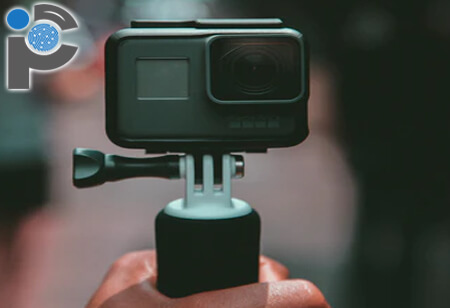
Action cameras are not typically used by private investigators during surveillance cases, however, there are some circumstances where they can be used.
A private investigator is not likely to walk around with a GoPro strapped to their head, however, if the agent is dressed as a cyclist or motorcyclist, and wearing a helmet camera, or a camera attached to their torso, then the camera would be much less likely to arouse suspicion.
Action cameras, when combined with a suitable tripod or mount, can be useful to record video from the inside of vehicles, and other spaces where traditional equipment might not fit. They are occasionally concealed and used as hidden cameras, though covert cameras are typically easier to conceal for undercover work.
When it comes to action cameras, we recommend GoPro or SJ CAM products, though there are many other companies producing good quality action cameras.
When choosing an action camera, it’s worth paying more for a device which records in at least 4K resolution. If you intend to conceal the device, then be sure to check that its status LED can be turned off. Otherwise, if your camera has a blinking LED which indicates that it is recording, then it might need to be covered with tape or black marker in order for the camera to become more discreet.
Hidden cameras
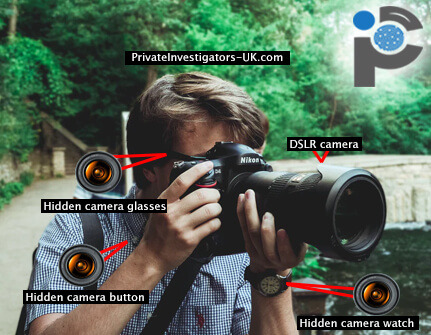
Private investigators typically own several different hidden cameras which can be concealed into different outfits during undercover assignments. Some of our favourite hidden cameras include the baseball cap hidden camera and the key fob hidden camera. They can be used and incorporated into many different assignments without the need to prepare by modifying clothing to suit the cameras.
Of course, we rely on many other hidden cameras during surveillance cases, but just as the old adage goes, we believe that a good private investigator shouldn’t reveal all his tricks!
Dashboard cameras
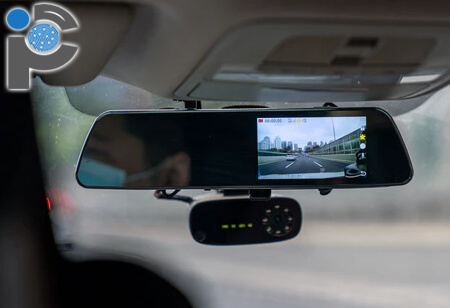
It is not very often that a private investigator will typically use their dash camera to gather evidence for a surveillance case. However, whether or not you are a private investigator, having a dash cam inside your vehicle just makes sense for many different reasons.
Many dash cameras only record footage looking forward onto the road from the front windshield. We would suggest that this is not enough – if you are going through the effort to install a dash cam, then it’s worthwhile adding an additional rear facing camera mounted above your rear windscreen or outside the vehicle.
It’s possible to take your dash cam setup another step forward by adding multiple cameras to your vehicle. Some setups can include up to 5 or more cameras, which film video down both sides of the vehicle as well as the front and rear, covering all angles.
Image quality is very important with dash cams, and we would again recommend that you look for a dash cam which records HD video in at least 4K resolution. Lower resolution dash cameras might struggle to record vehicle number plates, rendering them useless for evidential purposes.
Camera tripods
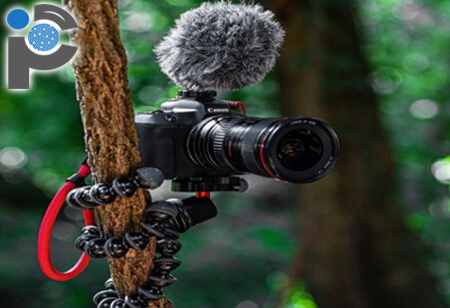
Private investigators should use tripods or gimbals to stabilize their cameras wherever possible. Especially when shooting video, a tripod will help to provide clear and professional footage. For mobile surveillance which is being conducted from a car, the investigator will need to choose a tripod suitable for their vehicle.
In addition to a main tripod or gimbal suitable for the use case, we also recommend keeping a GorillaPod handy. Their flexible arms can be wrapped around and attached to car head rests, handles, trees, railings, and many different objects where a traditional tripod would not be able to fit. They can also act as a handle for the camera when not fixed to an object.
Backup camera
Cameras can occasionally break, malfunction, or fail to work, and it’s always a good idea to make sure that you have at least one backup camera whilst conducting surveillance; whether that is a DSLR camera, video camera or even a point and shoot.
High-capacity memory cards are inexpensive and a competent surveillance agent will always be sure to have spares. It’s also a good idea to carry a power bank or spare batteries which can be used to recharge devices during assignments, should this be necessary.
A word of caution
When purchasing any type of camera equipment, remember the adage “buy nice or buy twice”. We recommend purchasing brand name cameras new and from reliable sources.
There are many counterfeit devices floating around on the market, and low-quality cameras which make false claims about their specifications. When purchasing a dash camera, for example, you are likely to find cameras which claim to record in 4K resolution, but that are merely recording in a lower resolution and resizing their footage digitally. Devices may also lie about the frame rate which they record in.
We extend these words of caution when it comes to purchasing memory cards. There are many, many fake/counterfeit memory cards in the market. These memory cards are sold in packaging which looks exactly the same as genuine products, however, counterfeit memory cards have a tendency to lose data, which has the potential to cause no end of problems for an investigator… Imagine losing all of the images gathered after a surveillance assignment due to a faulty memory card. Purchasing memory cards from reliable vendors can help to avoid this issue.
Related articles
If you enjoyed this post then check out these related articles:
How Long Do Private Investigators Follow People?
July 22, 2021 - Reading time: 8 minutes
Updated on: August 7, 2025
Investigators only follow people while under instruction from their clients, and it is ultimately our clients who decide the overall length of their investigations. Often our clients will instruct us until they have received the desired evidence or until the cost of their investigation has reached their budget.
Private investigators can follow subjects for several days, or even weeks in some cases. However, the average length of a surveillance case is typically around 1-6 weeks in total. We can follow subjects for as little as 1 day in some cases; other times we might be asked to work sporadically over several months.
In terms of how many hours per session we conduct surveillance, this is also a decision for our clients, though ourselves and most private investigators will generally work for a minimum of 1 full day (8+ hours). It is not uncommon for a session of surveillance to span up to 12 hours, depending on the circumstances and needs of our client. Surveillance sessions sometimes be extended into overtime at short notice if doing so might benefit the case.
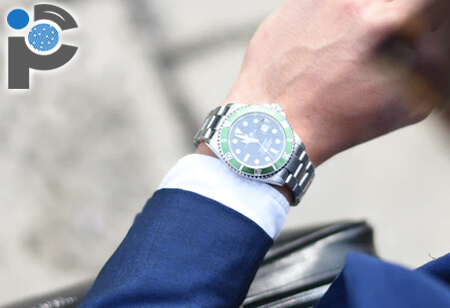
Hiring an experienced private investigator to follow someone, and provide high quality surveillance is not a cheap endeavour in most countries around the world. In the UK for example, we usually recommend our clients to budget at least £1,000 for a reasonable surveillance case – many cases will also exceed this amount. It is not uncommon for private investigators to charge several thousand pounds, euros or dollars, depending on the nature and direction of the case.
The overall length of time that a private investigator follows someone will also depend on the level of evidence required by our client. Some clients will end an investigation once they have gathered incriminating photos/video, however, others will decide to prolong a surveillance case in order to gather sufficient evidence that certain behaviour is taking place over several days, weeks, or months.
How much surveillance time is needed to catch someone?
It is usually very difficult or impossible for us to predict the total amount of surveillance time which may be needed in each case. There are so many variables involved with conducting surveillance, most of which are outside of our control. The nature and goal of the case will also vary its length, as well as the level of evidence our client is aiming to gather.
During infidelity investigations, our clients will have a better knowledge than us about their partner’s potential movements and any critical moments when they are most likely to be caught committing acts of infidelity. These details can help us to target surveillance at specific times on specific dates.
With infidelity cases, the total amount of surveillance time required will depend on how often the subject is spending time with their lover and how often opportunities arise for us to photograph them.
Planning your surveillance case
Often, we find that if a person is cheating on their partner, they will tell many different lies in order to cover up their activities… They will claim to be at places they aren’t, and will lie about how much time they spend at different locations, in order to convince their partners that nothing is going on.
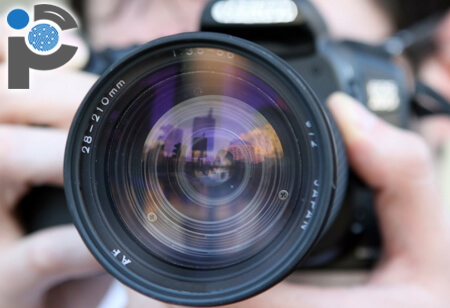
If your partner is having an affair then they are not likely to be fully honest about their activities and movements, for this reason we suggest taking their claims with a grain of salt when planning dates for us to conduct surveillance.
We regularly find that cheating partners are dishonest about the time that they finish work, for example. They might claim to be at the gym or with friends whilst they are in fact spending time with their secret lover. Placing your partner under surveillance at very specific times might not always be the best path to take.
Usually, if a subject is placed under surveillance for several days conductively, then we would expect to begin gathering photos/video which documents their activities.
For other surveillance cases such as injury claim investigations, cohabitation investigations, or investigating sick employees, predicting the total amount of surveillance time can prove even more difficult, as our clients might not have as much useful information for us.
In cases where information is sparse, we can use what we term as the ‘battleship method’ for surveillance. Similar to the Battleship board game, this strategy entails surveillance at random times on random days of the week until we start to build up a picture about the subject’s general movements.
Once we feel that we have sufficient knowledge about the subject’s routine and any locations they are likely to visit during surveillance, we can use this information to form a strategy for placing the subject under surveillance in the future.
Of course, our clients are also welcome to pay a retainer sufficient to cover many surveillance hours and simply let us work until we are able to gather evidence which they are happy with. Many of our clients do take this approach.
Static or mobile surveillance
During a surveillance case, the agents may use static or mobile surveillance, or a combination of the two. Static surveillance involves photographing a subject as they come and go from a specific property or location, whereas mobile surveillance would involve following them around.
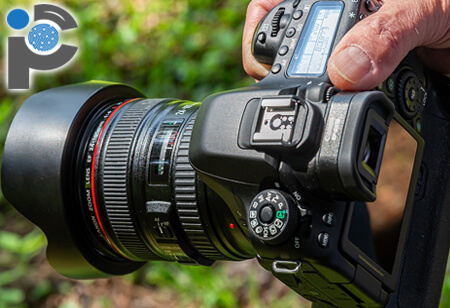
Mobile surveillance can be conducted on foot, using public transport, or using vehicles such as cars or motorbikes, even bicycles can be used in some cases depending on the circumstances and location.
In order for us to discreetly follow a subject for a prolonged period as part of mobile surveillance, we will need as many resources and agents as possible.
Put it this way: If the same vehicle in the subject’s rear-view mirror for 50 miles, they will notice and become aware of that. Multiple agents with multiple vehicles would typically be required in order to follow a vehicle for any significant distance.
Our agents would sooner abort surveillance rather than risk making the subject aware that they are being followed.
In order for us to achieve the best results in your case, please provide as many details as possible relating to the subject and any locations they are likely to visit during surveillance. We will then assess your case and endeavour to use the best possible tactics.
Why do private investigators follow people?
There are many different circumstances where we might be instructed to place a subject under surveillance. Infidelity investigations, while high up on the list of top reasons, are far from being the only use for surveillance for modern private eyes.
Surveillance can also be used during business investigations or due diligence, for example. We can use surveillance to investigate claims of injury, sickness, or to gather evidence of cohabitation.
For a more detailed breakdown, please see our article Why do private investigators follow people?.
If you’re wondering why, hire a spy
Thank you for reading the PrivateInvestigators-UK blog. Feel free to browse our homepage to learn more about us, our services, and pricing.
12 Signs that Your Partner is Having an Affair
July 18, 2021 - Reading time: 16 minutes
Updated on: October 5, 2025
When you realise that your partner is sometimes vague about their activities, or you notice subtle behavioural changes, unusual actions, and occurrences, it may be that there is cause for concern. Be aware, though, that there may be an innocent explanation and even more than one of these together may not mean that your partner is playing away. However, follow your instinct; check out our list; as your hunch may be right.
1. Suddenly they are difficult to reach
A change in being able to contact them and their eagerness to call you back when there is no reason for not calling back as they usually would. Valid reasons would be things like a promotion at work or you know they are working on an important project with a tight deadline. No apparent reason for suddenly being unavailable to you should trigger alarm bells.
2. A breakdown in communication
Suddenly they are unresponsive, apathetic even and won’t communicate with you. They are no longer interested in telling you about their day; you have to ask and are then dismissed or fobbed off.
A persistent refusal to communicate is known as stonewalling and is a common signal that something is wrong in your relationship. If your partner is:
- Ignoring what you say, refusing to listen or respond
- Storming off without a word for no reason that you are aware of
- Finds excuses why they can't talk on the phone
- Uses eye-rolling or other dismissive body language
- Changes the subject or uses avoidance techniques to avoid telling you what’s wrong
- Refuses to answer your questions
- Acts in a passive-aggressive manner
They either perceive there is something wrong with the relationship, or they may be having an affair.
3. Phone and laptop habits change
They suddenly start keeping their phone with them more, change the password, frequently put it on silent, and then leave the room to listen to voicemail or look at texts. They no longer leave their phone on the side when they come in or ask you to hand it to them.
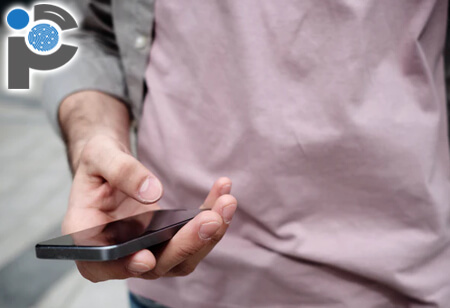
Hiding their phone screen from you and not allowing you to borrow or use their phone is another giveaway. Perhaps they need time to delete messages from their phone before allowing you to use it. They could start spending more time on a laptop or PC at home. Again, they may change their password, and you no longer have access to their emails.
4. They stop using affectionate terms
A big indicator is when you realise that they are no longer using the words 'I love you' or affectionate nicknames. When this happens, there's likely to be some underlying issue.
However, they might suddenly seem over-affectionate as a way to cover their tracks.
5. They seem to have a problem with you for no reason
Often a cheating partner is battling internal conflict by convincing themselves that you are the problem and, therefore, the affair is justified. Cognitive dissonance is an anxiety that occurs when someone is doing something that they should know is wrong, and they work to justify their actions that are wrong by convincing themselves the opposite.
This type of dissonance often shows as being hypercritical of you out of the blue.
6. An apparent loss of libido or increase in sex
Cheaters interest in sex at home is likely to decrease; after all, they are getting it elsewhere. They will distance themselves, avoid the usual situations that lead to sex and have excuses.

However, it is not unusual for a sudden increase in sexual appetite. Guilty parties may seem interested in more sex at home. There are several explanations, such as trying to cover their tracks by pretending everything is great with you. They take control of sex, so they can satisfy you when it suits them in the expectation you won’t miss it when they cannot provide it. They are comparing how they feel with each of their sexual partners.
A sudden increase or decrease in sex, especially when any of the other signs are present, could be a clue that your partner is having an affair.
7. Their friends are suddenly unavailable
It may be that they need someone to confide in or to talk the situation through with. Plus, of course, they may need friends as an alibi for when they are cheating. Your partner's friends will frequently actually know something is going on before you even suspect it. If your partner's friends are unavailable and seem to avoid you, perhaps they are doing this to lessen their own guilt.
8. A sudden interest in their appearance or showering more frequently
A sudden otherwise unexplained interest in their appearance, showering as soon as they get in, wearing fragrance or inexplicably changing their fragrance are all things that could mean there is someone else in their life. They wash to remove the traces of the other person and they work on their appearance and make sure they smell nice to impress the new person. When your partner suddenly starts this type of route, it's reasonable to enquire. There may be a genuine reason, but listen and watch when they reply.
9. They stop chatting about their day
It’s usual for your partner to discuss their day with you. When this suddenly stops, and they suddenly don't want to tell you about their day, journey, and so on, alarm bells should ring. Because people usually share the details of their day with their partner. If your partner is cheating, they'll be sharing those details elsewhere. Consequently, they're not telling you or telling you less. They may not even realise that they are no longer sharing with you. They may try to cover their tracks by telling you a little, but if the funny anecdotes have gone or they are suddenly all you are getting, then it may be that they have someone new to tell.
10. They accuse you of having an affair
Sometimes the cheater will draw attention away from their actions by accusing you of cheating. They can put you on the defensive and make it difficult for you to bring up your concerns. This is often followed up with needing to know what you are doing when. This tactic ensures they know when and where to cheat when they know you are safely elsewhere.
11. Increasing gifts
Happy, loving partners give gifts, but so do those with a guilty conscience. Cheaters see it as a way of reassuring you that everything is fine as they cover their tracks.

Extravagant gifts especially imply their devotion to you, and they believe will reassure you that everything is "normal". This pseudo devotion is a tool they use to cover up small signs of cheating so that they can convince you there is nothing going on.
12. They have something important to do elsewhere
If your partner is having an affair, they will need to find excuses to be away or to create the time and space they need for the new squeeze. These may include things like:
- A family member who needs things done
- A friend in need
- Helping a friend with a house extension or decorating
- An important project at work
Relationships do naturally change
Our relationships naturally grow, alter and evolve. When you ask about some change that is bothering you, there should be no accusation from you regarding initial concerns; equally, there should be defensiveness from your partner if there is an innocent explanation.
If you're wondering why, hire a spy
If you suspect that your partner might be cheating on you, then don't live in doubt. We can help to investigate your partner and find out what is really going on while gathering evidence. Our private investigators cover all areas of the United Kingdom and beyond. Visit the PrivateInvestigators-UK homepage for more information on us and the services we offer, or check out our other related articles below:
- 10 Body Language Signals That Your Partner Might Be Cheating
- 10 surprising red flags that your partner is cheating on you
- Husband cheating on me with escorts
Need Proof of a Cheating Partner in the UK?
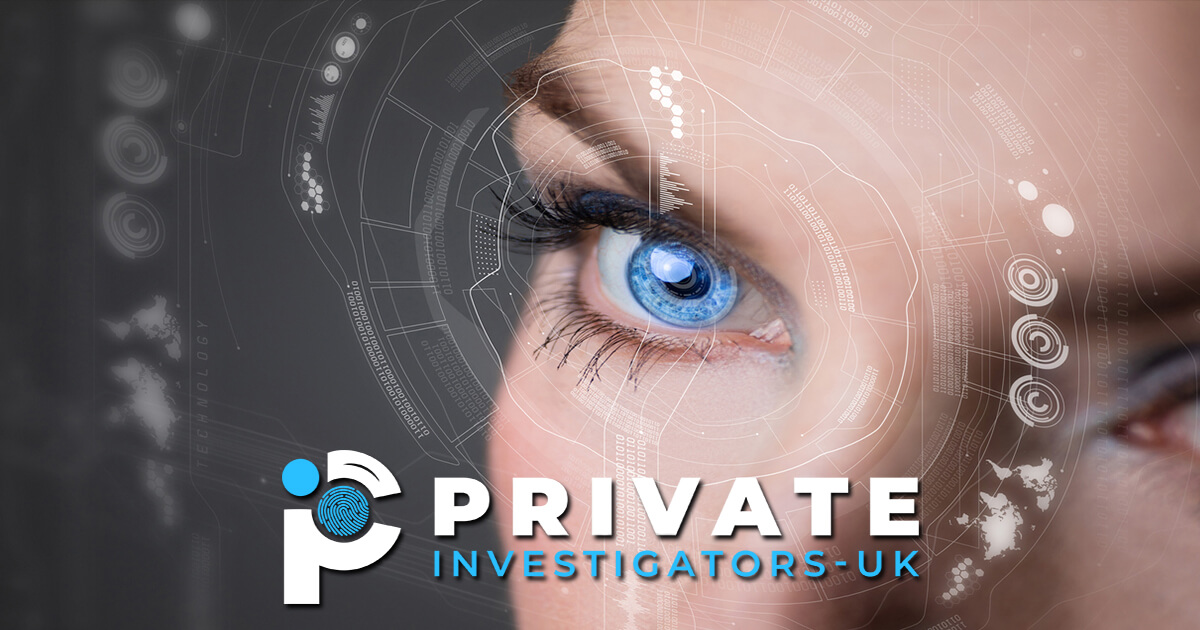
If you're concerned that your partner might be cheating on you, our experienced detectives can check their activities and gather evidence discreetly across the UK. Request a free quote through our secure website.
You are reading the PrivateInvestigators-UK blog — home to the UK's leading detective agency. Learn more about us by visiting our homepage PrivateInvestigators-UK.com.